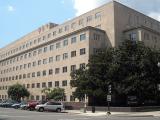(CIDRAP Source Weekly Briefing) – Ask people which private sector most needs to be prepared for a pandemic, and I bet they will tell you healthcare. Such a conclusion is understandable given the grim vision of a pandemic with its untold numbers of severely sick and dying people in communities all across the world.
If only it could be that simple.
Today's global just-in-time economy completely blurs the boundaries between business sectors. How will healthcare facilities, for example, provide care to influenza patients as well as people with such conditions as cancer, heart attacks, and stroke if the following things occur.
- Pharmaceutical and medical device companies can't manufacture and deliver drugs and medical supplies?
- Institutional food suppliers can't obtain and deliver food?
- Utilities can't sustain electrical service, and diesel-powered electric generators run out of fuel?
Deciding on the most important sector for pandemic preparedness is about as sensible as trying to answer the classic chicken-and-egg question. The sustainability of any one sector depends on the sustainability of many sectors.
I'm convinced the early bellwethers of how we respond to an unfolding pandemic, however, will be the international transportation industry and the financial markets.
Our dependence on transportation
The importance of the international transportation industry seems obvious. If governments close borders around the world to try to stop early transmission of the virus, the use of planes, ships, and even trucks will screech to a dead halt. Next up: the strangulation of the global just-in-time economy. The 80% of pharmaceutical products made offshore that we depend on every day in this country will be in very short supply very quickly. One can begin to imagine the collateral damage that disrupting international trade and travel will level on our modern developed-world society.
If governments decide to close borders, which I think would be a mistake, we'll be out of options. The best you can do is plan now for the possibility.
The financial sector and public confidence
While I believe the performance of the international transportation industry early in the next influenza pandemic will directly affect how many other sectors function throughout the first wave, I have no doubt that society's confidence in our collective ability to handle and even survive a pandemic will be linked to the performance of the financial markets. Banks, exchanges, clearing organizations, payment system processors, and broker dealers are the gears and grease that make possible our everyday financial transactions at places like the grocery store or shopping center. Financial services provide the governments of the world a means for supporting and maintaining their economies.
If, in the first hours to days of the pandemic, we see governments, investor institutions, hedge funds, and even individual investors move assets to perceived safer investment positions, society will likely react with a sense of panic. And if the markets themselves cannot perform critical functions because of a lack of business continuity preparedness, the psychology of society will be shaken. This tipping point, when many perceive that government and leading businesses are not prepared to help us get through the pandemic, will make the week in New Orleans following Hurricane Katrina seem rather mild.
Fortunately, industry regulators are paying attention to the pandemic preparedness of the United States' financial sector. A report released this week by the US Government Accountability Office (GAO) does these things:
- Says organizations that form the backbone of the US financial industry need to do more to prepare
- Urges federal regulators to set deadlines for these organizations to complete pandemic plans
- Lays out a series of steps the financial sector must address to improve sustainability during a pandemic
The report is a must read for any business preparedness professional. (See Influenza Update story, "GAO says financial markets not ready for a pandemic.")
In addition, the US Security and Exchange Commission (SEC) is beginning to work with the Securities Industry and Financial Markets Association (SIFMA) to plan a 4-week exercise that will begin in September 2007. The exercise will be modeled after one that ran in October and November 2006 in the United Kingdom, which involved more than 70 organizations and about 3,500 staff members from all areas of the British financial world.
Bottom line for business
Unfortunately, the fate of international trade and travel during a pandemic will depend on whether governments decide to close borders. If that happens, there may be little you can do about it at the time. But the financial market, if it prepares, is another story.
Whatever business you are in, you'll need a functional financial market during a pandemic. In fact, I believe our entire society's perception of how we are doing, from the earliest days of the pandemic right through the last wave of illness, will be tied to a financial market that can function. A "run on the bank"—as occurred during the Great Depression—or an inability to service public and private transactions in the early days of the pandemic, will shake society's confidence and undermine faith in government and business leaders who step forward to lead the public through the course of the pandemic.
Every company in the financial sector must support the SEC and SIFMA 4-week exercise this fall. Only through efforts like this exercise can we identify the big gaps in our preparedness planning and fix them before real catastrophe strikes. Such preparedness efforts are critical and must be successful. If we do not support them, we will have no one to blame but ourselves when financial markets wilt during the pandemic and chaos reigns.



















